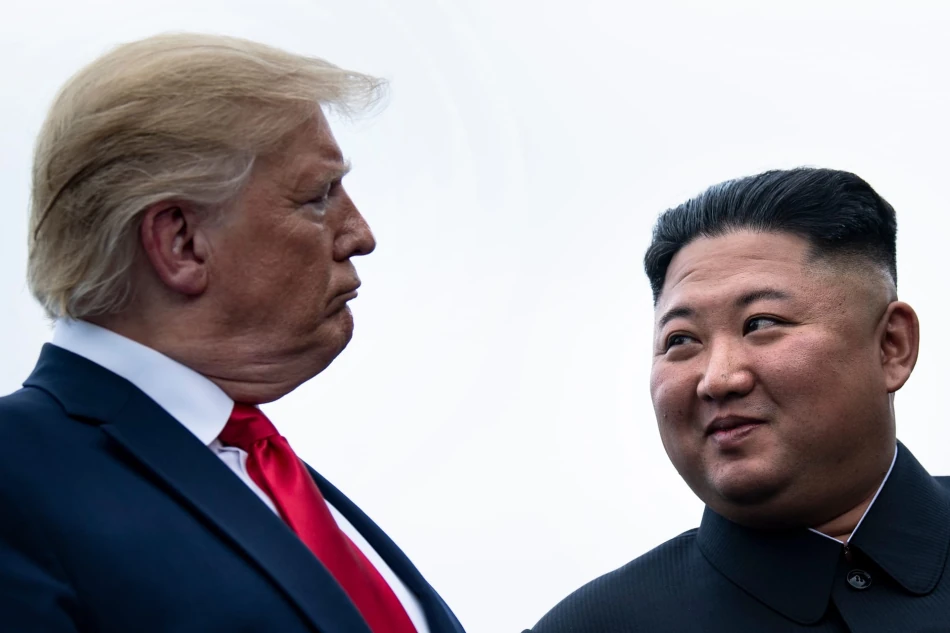
North Korean Leader Open to Talks with US, but with Crucial Condition
Kim Jong Un Opens Door to Trump Talks — But Nuclear Weapons Stay
North Korea's leader Kim Jong Un says he has "beautiful memories" of Donald Trump and is open to future talks with the US — but only if Washington drops its demands for nuclear disarmament. The statement marks Kim's first major diplomatic overture since Trump's return to the White House, setting the stage for a potential revival of their unusual personal relationship.
The Personal Touch Returns
Kim's comments, delivered during a major parliamentary session and reported by state media, struck a notably personal tone. "I still personally keep beautiful memories of the current US President," he said, referring to their three previous meetings during Trump's first term.
This language echoes the famously warm rhetoric both leaders used during their diplomatic courtship from 2018 to 2019, when Trump spoke of "falling in love" through letters and Kim praised their "special relationship."
The Nuclear Red Line
But Kim made his conditions crystal clear. He's willing to talk only "if the United States abandons its delusional obsession with nuclear disarmament and wishes to coexist peacefully with us based on recognizing reality."
The North Korean leader framed nuclear weapons as non-negotiable, calling them "a matter of existence" for protecting his country against what he sees as serious threats from the US and South Korea.
Why This Matters Now
Kim's timing isn't accidental. Trump just returned to office, and North Korea's nuclear program has grown significantly since their last meeting in 2019. The country has tested new missile systems, declared itself a nuclear weapons state, and expanded its arsenal.
This puts Trump in a different position than his first presidency. Back then, he could sell meetings with Kim as preventing nuclear development. Now, he'd be negotiating with a more advanced nuclear power.
What's Changed Since 2019
The diplomatic landscape looks completely different from Trump's first term. North Korea has strengthened ties with Russia and China, providing weapons for Russia's war in Ukraine. The country has also hardened its stance on unification with South Korea, recently calling it an enemy state.
South Korea, meanwhile, has elected more conservative leadership that takes a harder line on the North. This creates additional complications for any potential US-North Korea dialogue.
The Strategic Calculation
Kim's offer reveals careful strategic thinking. He's betting that Trump's desire for a foreign policy win might make him accept North Korea as a nuclear power — something previous US administrations refused to do.
For Trump, the appeal is obvious. A successful agreement with North Korea would give him a major diplomatic achievement and potentially reduce tensions in East Asia. But accepting North Korea's nuclear status would represent a significant shift in decades of US policy.
Regional Implications
Any US-North Korea deal would send shockwaves through the region. Japan and South Korea have built their security strategies around US protection against North Korean threats. Accepting North Korea's nuclear status could push these allies toward developing their own nuclear weapons.
China would likely welcome reduced US-North Korea tensions, as it prefers stability on its border. But Beijing also worries about any outcome that might strengthen US influence in the region.
The Reality Check
Despite the warm words, major obstacles remain. North Korea's human rights record, its weapons sales to Russia, and its threats against South Korea all complicate any potential diplomatic progress.
Trump's own advisors may also resist accepting North Korea as a nuclear power, seeing it as rewarding bad behavior and encouraging other countries to pursue nuclear weapons.
Kim's statement opens the door, but walking through it would require both leaders to make significant compromises neither has shown willingness to make before.
Most Viewed News

 Sara Khaled
Sara Khaled






